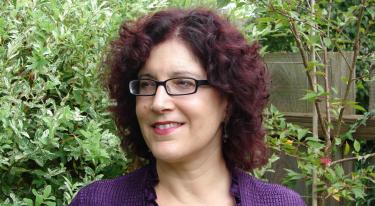Miri Rubin
Liturgy’s Present: How the Study of Liturgy is Animating the Study of Religious Cultures
Historians of social and cultural relations have enthusiastically embraced the study of liturgy over the last decade. Liturgical texts, and practices - as well as the artefacts associated with them – are now studied in an integrated fashion, often within closely observed settings of place and space. One of the interesting results of this new engagement is that liturgy is now treated not as the privileged activity of the clergy, but as an interaction which actively involved lay people. It has also inspired a lively interaction between historians of music, art historians, and historians tout court. Such understanding of liturgy has also converged with current interests in vernacular theology and in the dissemination of religious debates and interests among lay people.
This keynote presentation will introduce the underlying themes of liturgy’s present presence in historical inquiry. It will raise questions related to the very definition of what the term liturgy can - and may - denote, as it emerges as a hub of interdisciplinary inquiry.
 Miri Rubin is professor of medieval and early modern history at Queen Mary University of London. She was educated at the Hebrew University of Jerusalem and Cambridge, has taught at Cambridge and Oxford, and at Queen Mary is now Head of the School of History. Her research has addressed themes in the religious cultures of medieval Europe, including attitudes to the sacraments, the Virgin Mary, and Jewish-Christian relations. Her books include Charity and Community in Medieval Cambridge (1987); Corpus Christi (1991), Gentile Tales (1999) Mother of God (2009) and Emotion and Devotion (2009). Her recent work on the origins of the ritual murder accusation against Jews will appear in August 2014 in the Penguin Classics series.
Miri Rubin is professor of medieval and early modern history at Queen Mary University of London. She was educated at the Hebrew University of Jerusalem and Cambridge, has taught at Cambridge and Oxford, and at Queen Mary is now Head of the School of History. Her research has addressed themes in the religious cultures of medieval Europe, including attitudes to the sacraments, the Virgin Mary, and Jewish-Christian relations. Her books include Charity and Community in Medieval Cambridge (1987); Corpus Christi (1991), Gentile Tales (1999) Mother of God (2009) and Emotion and Devotion (2009). Her recent work on the origins of the ritual murder accusation against Jews will appear in August 2014 in the Penguin Classics series.